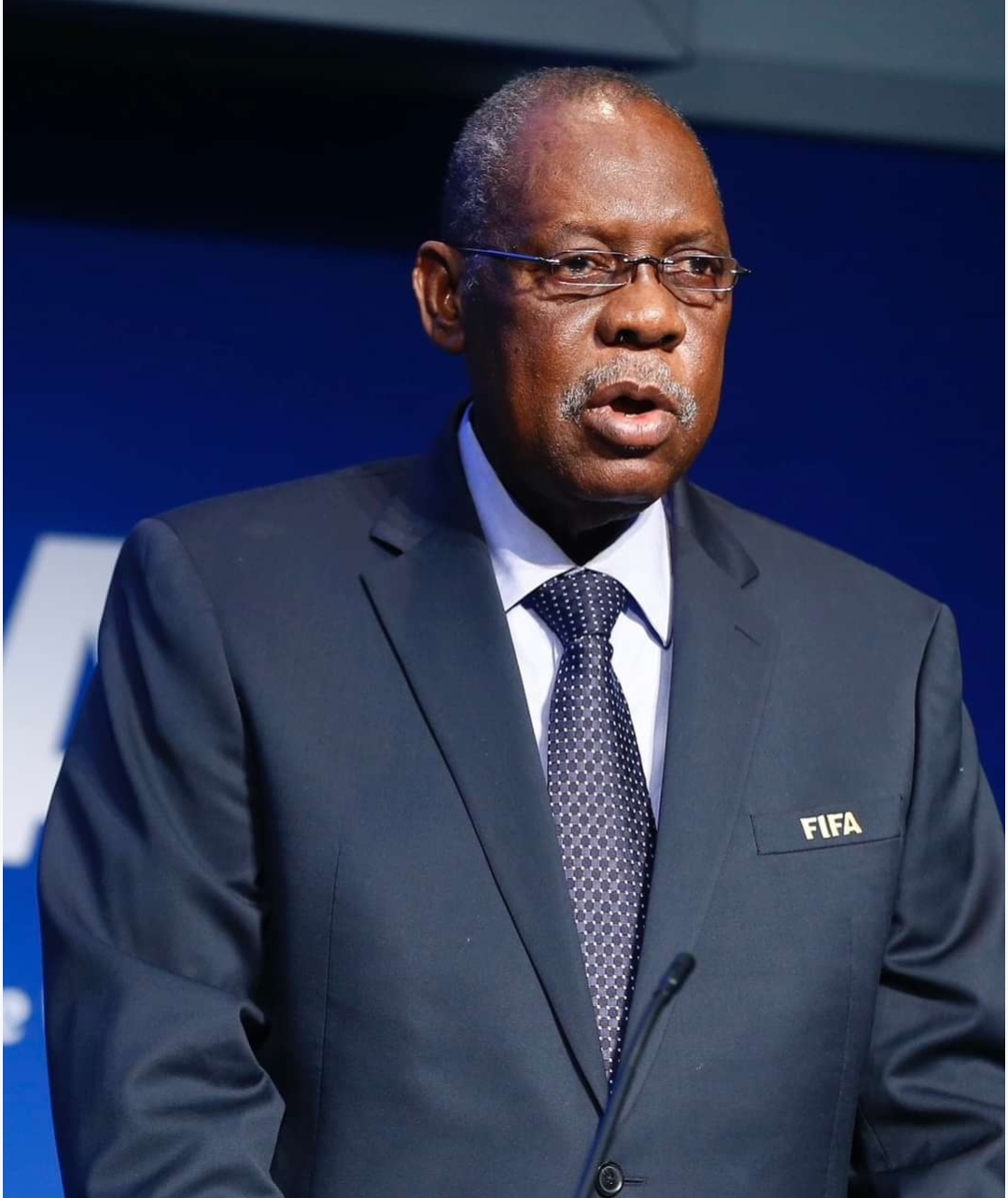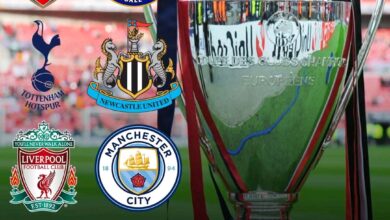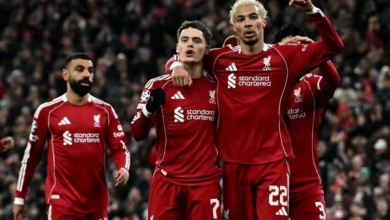Deal done! Fabrizio Romano confirms ANOTHER Man City transfer

The world of football transfers never sleeps, and Manchester City continues to demonstrate their sophisticated approach to player development and strategic asset management. The latest confirmation from renowned transfer specialist Fabrizio Romano regarding Sierra Leone international Abdulay Juma Bah’s impending loan move to OGC Nice represents far more than a simple temporary transfer. It exemplifies the intricate web of modern football’s loan system, the challenges faced by young African talents in European football, and Manchester City’s evolving strategy in the post-Financial Fair Play era.
The Juma Bah Phenomenon: From Freetown to European Football
Humble Beginnings in Sierra Leone
Abdulay Juma Bah’s journey reads like a modern football fairy tale, albeit one complicated by the realities of contemporary transfer politics. Born and raised in Sierra Leone, a nation where football represents hope and dreams for countless young people, Bah’s path to European football began at AIK Freetong, a local club that has increasingly become a stepping stone for Sierra Leonean talent seeking opportunities abroad.
Sierra Leone’s football infrastructure, while passionate and talent-rich, faces significant challenges in developing young players to international standards. The lack of sophisticated training facilities, limited exposure to high-level competition, and economic constraints mean that players like Bah must often leave their homeland at crucial developmental stages to realize their potential.
The Spanish Adventure: Real Valladolid’s Gamble
When Real Valladolid identified Bah as a potential talent during the summer transfer window, few could have predicted the rapid trajectory that would follow. The initial loan arrangement from AIK Freetong represented a relatively low-risk investment for the Spanish club, operating in LaLiga’s competitive environment where identifying undervalued talent can make the difference between European qualification and relegation battles.
Valladolid’s decision to make Bah’s loan permanent in January for a modest €125,000 fee initially appeared to be shrewd business. However, this nominal fee would later prove to be one of football’s most remarkable value discoveries in recent years. The club’s sporting directors and coaching staff recognized something special in the young defender’s performances, leading to the permanent acquisition that would eventually create significant complications.
Breakthrough Performance and Unexpected Stardom
Bah’s transformation from unknown quantity to sought-after prospect occurred with remarkable speed. His performances for Valladolid’s reserve and first-team squads demonstrated a maturity and technical ability that belied his age and limited European experience. The central defender’s combination of physical presence, aerial dominance, and composure on the ball caught the attention of scouts across Europe’s major leagues.
The €6 million release clause inserted into Bah’s permanent contract at Valladolid reflected the club’s cautious optimism rather than any expectation of immediate stardom. This conservative valuation would prove to be a significant miscalculation, as Bah’s rapid development and impressive performances began attracting interest from clubs operating at the highest levels of European football.
Manchester City’s Strategic Interest and Controversial Acquisition
Pep Guardiola’s Defensive Philosophy
Manchester City’s interest in Juma Bah must be understood within the context of Pep Guardiola’s tactical evolution and the club’s long-term strategic planning. Guardiola has consistently emphasized the importance of ball-playing defenders who can contribute to the team’s possession-based approach while maintaining defensive solidity. The Spanish coach’s system requires center-backs who are comfortable receiving the ball under pressure, capable of initiating attacks from deep positions, and intelligent in their positioning during both defensive and offensive phases.
Bah’s profile suggested he possessed many of these qualities, despite his limited exposure to elite-level football. His performances for Valladolid demonstrated an ability to read the game, make crucial interceptions, and distribute the ball effectively under pressure. These attributes aligned perfectly with City’s requirements for defensive reinforcements, particularly given the aging profile of some squad members and the need for long-term succession planning.
The Controversial Transfer Saga
The circumstances surrounding Bah’s departure from Real Valladolid highlight the often contentious nature of modern football transfers, particularly when they involve clubs with significant financial advantages. Manchester City’s approach to securing Bah’s services reportedly involved direct contact with the player’s representatives, a common practice in professional football but one that created friction with Valladolid’s hierarchy.
Valladolid’s attempts to convince Bah to sign an improved contract reflected their growing awareness of his market value and potential. The club’s offer likely included enhanced salary terms, extended contract duration, and possibly performance-related bonuses designed to retain their emerging asset. However, the allure of joining one of Europe’s most successful clubs, combined with the guaranteed financial security and developmental opportunities at Manchester City, proved irresistible for the young defender.
The Spanish club’s subsequent statement condemning both Bah’s decision and Manchester City’s conduct revealed the frustration experienced by smaller clubs in the current transfer ecosystem. Valladolid’s public criticism highlighted the power imbalances that exist between elite clubs and those operating with more modest resources, despite the existence of various regulatory frameworks designed to protect smaller clubs’ interests.
The Modern Loan System: Strategic Asset Management
Manchester City’s Loan Philosophy
Manchester City’s decision to immediately loan Bah to RC Lens as part of the Abdukodir Khusanov deal demonstrates the sophisticated nature of modern transfer arrangements. The club’s loan system has evolved into a crucial component of their overall strategy, serving multiple purposes: player development, relationship building with partner clubs, and financial optimization within regulatory constraints.
The Citizens have developed an extensive network of partner clubs across Europe’s major leagues, creating pathways for young players to gain crucial first-team experience while maintaining City’s oversight of their development. This approach allows the club to invest in promising talents without immediately integrating them into Guardiola’s squad, where playing time might be limited due to intense competition for positions.
RC Lens Experience: A Crucial Development Phase
Bah’s loan spell at RC Lens during the second half of the previous season provided valuable insights into his readiness for elite-level football. Ligue 1’s physical and tactical demands offered an ideal testing ground for the young defender, allowing him to adapt to European football’s intensity while competing against established international players.
His performance record at Lens, starting approximately half of the club’s league fixtures, suggested steady integration into French football’s demanding environment. The experience would have exposed him to different tactical approaches, varying styles of play, and the pressure of performing consistently in a competitive league environment. These experiences are invaluable for young players transitioning from smaller leagues to Europe’s elite competitions.
OGC Nice: The Next Chapter in Bah’s Development
INEOS Ownership and Strategic Vision
OGC Nice’s emergence as Bah’s next destination reflects the growing influence of INEOS in European football and their commitment to developing young talent within their organizational structure. The British multinational company’s ownership of Nice has brought increased investment, improved infrastructure, and a more sophisticated approach to player recruitment and development.
INEOS’s multi-club ownership model, which includes Manchester United and other properties, creates opportunities for strategic player movements and shared expertise across their football portfolio. Nice’s interest in Bah likely reflects both the player’s individual merits and the potential for future collaboration between INEOS-owned entities in player development initiatives.
Beating Lyon: Competitive Interest and Decision Factors
The reported competition between Nice and Olympique Lyonnais for Bah’s services illustrates the defender’s growing reputation within French football circles. Lyon’s interest, possibly connected to Rayan Cherki’s move to Manchester City, demonstrates how modern transfers often involve complex multi-party arrangements where player movements become interconnected.
Bah’s preference for Nice over Lyon suggests several possible factors: playing time guarantees, tactical fit, geographical preferences, or specific development plans outlined by Nice’s coaching staff. The decision-making process for young players in these situations often involves careful consideration of immediate opportunities versus long-term career prospects.
The Broader Context: African Talent in European Football
Sierra Leone’s Football Development
Bah’s success story highlights both the potential and challenges facing Sierra Leonean football development. The nation has produced several notable players who have achieved success in European leagues, but systematic development programs remain limited due to economic constraints and infrastructure challenges.
The success of players like Bah can inspire increased investment in youth development programs and create pathways for future generations of Sierra Leonean talents. However, it also raises questions about talent drain, where the most promising players leave their home countries at young ages, potentially limiting their contribution to domestic football development.
Integration Challenges and Opportunities
Young African players moving to European football face unique challenges beyond the typical adjustment issues experienced by all international transfers. Cultural adaptation, language barriers, different playing styles, and isolation from family support systems can significantly impact their development and well-being.
Manchester City’s loan system potentially addresses some of these challenges by providing structured support and gradual integration into European football culture. The club’s experience with African talents and comprehensive support systems can facilitate smoother transitions for players like Bah.
Financial Fair Play and Strategic Compliance
Modern Transfer Economics
Manchester City’s approach to the Bah transfer reflects the complex financial calculations required under current Financial Fair Play regulations. The loan system allows clubs to spread financial commitments while maintaining compliance with various regulatory frameworks governing player transfers and squad composition.
The initial investment in Bah, followed by strategic loan arrangements, demonstrates how elite clubs navigate regulatory constraints while building valuable player portfolios. These strategies require sophisticated financial planning and legal expertise to ensure compliance with evolving regulatory requirements.
Asset Development and Future Value
From an investment perspective, Bah represents the type of asset acquisition that modern football clubs increasingly pursue. Young players with high potential can appreciate significantly in value through proper development and exposure, creating substantial returns on relatively modest initial investments.
Manchester City’s strategy of acquiring promising young talents and developing them through strategic loan arrangements has proven successful with numerous players who have either contributed to the first team or generated significant transfer revenues through permanent sales.
Tactical Analysis: Bah’s Playing Style and Potential
Defensive Capabilities
Bah’s emergence as a center-back prospect reflects modern football’s evolving requirements for central defenders. His physical attributes, including height, strength, and aerial ability, provide the foundation for success in European football’s demanding environment. However, his technical skills and game intelligence appear equally impressive based on his performances for both Valladolid and Lens.
The young defender’s ability to read dangerous situations, make crucial interceptions, and organize defensive lines suggests maturity beyond his years. These qualities are particularly valuable in Guardiola’s system, where defenders must communicate effectively and maintain positional discipline while supporting the team’s possession-based approach.
Ball-Playing Skills
Modern central defenders must contribute significantly to their team’s build-up play, and Bah’s performances suggest he possesses the technical skills required for this responsibility. His passing accuracy, composure under pressure, and ability to find teammates in advanced positions align with contemporary tactical requirements.
The transition from Spanish to French football has likely enhanced these abilities, as both leagues emphasize technical proficiency and tactical intelligence. His continued development in Ligue 1 should further refine these skills while exposing him to different tactical challenges and playing styles.
Looking Forward: Implications and Expectations
Short-term Objectives at Nice
Bah’s loan to Nice represents a crucial phase in his development trajectory. The expectations will likely include consistent first-team opportunities, continued improvement in his technical and tactical understanding, and successful adaptation to Nice’s specific tactical requirements under their coaching staff.
The INEOS ownership structure may provide additional resources and support systems to facilitate his development, including access to advanced training methods, sports science expertise, and comprehensive performance analysis. These advantages could accelerate his progression and enhance his readiness for eventual integration into Manchester City’s squad.
Long-term Manchester City Integration
The ultimate objective of this loan arrangement is to prepare Bah for eventual contribution to Manchester City’s first team. This goal requires continued development across multiple areas: tactical understanding of Guardiola’s system, physical preparation for Premier League demands, and mental preparation for competing at the highest levels of club football.
The timeline for this integration depends on various factors, including his performance at Nice, Manchester City’s defensive requirements, and competition from other players in similar positions. Success at Nice could accelerate this process, while any setbacks might necessitate additional loan arrangements or alternative career paths.
Industry Impact and Broader Implications
Transfer Market Evolution
The Bah transfer saga illustrates several important trends in contemporary football transfers. The increasing importance of release clauses, the strategic use of loan arrangements, and the complex negotiations between clubs of different financial capabilities all reflect the modern transfer market’s evolution.
These developments have significant implications for smaller clubs, young players, and the overall competitive balance within European football. The ability of elite clubs to identify and acquire promising talents from smaller markets creates opportunities for player development but also concentrates talent among the wealthiest organizations.
Regulatory Considerations
The circumstances surrounding Bah’s transfers raise important questions about current regulatory frameworks governing player movements. The effectiveness of existing protections for smaller clubs, the fairness of release clause mechanisms, and the potential need for additional safeguards all warrant consideration as the transfer market continues evolving.
Future regulatory developments may address some of these concerns, potentially creating more balanced mechanisms for player transfers while maintaining opportunities for talented individuals to advance their careers.
Conclusion: A Microcosm of Modern Football
Juma Bah’s journey from Sierra Leone to the heights of European football represents both the opportunities and challenges that define contemporary professional football. His story illustrates the global nature of talent identification, the complexity of modern transfer arrangements, and the strategic approaches employed by elite clubs to develop and deploy their human resources.
The confirmation of his loan to OGC Nice marks another chapter in what promises to be a fascinating career trajectory. Success in this next phase could establish him as a significant talent worthy of Manchester City’s long-term investment, while any struggles might necessitate alternative development paths.
For Sierra Leone football, Bah’s continued success provides inspiration and demonstrates the potential for talented individuals to achieve their dreams despite challenging circumstances. His journey serves as a beacon of hope for young players across Africa and other developing football markets.
The broader implications of this transfer extend beyond individual success stories to encompass questions about competitive balance, regulatory effectiveness, and the future direction of European football’s development. As the industry continues evolving, cases like Bah’s will provide valuable insights into the effectiveness of current approaches and the potential need for systematic changes.
Ultimately, Juma Bah’s story remains unwritten, with his upcoming season at Nice representing a crucial opportunity to demonstrate his readiness for football’s highest levels. The football world will be watching with interest as this young Sierra Leonean continues his remarkable journey through European football’s complex and demanding landscape.















